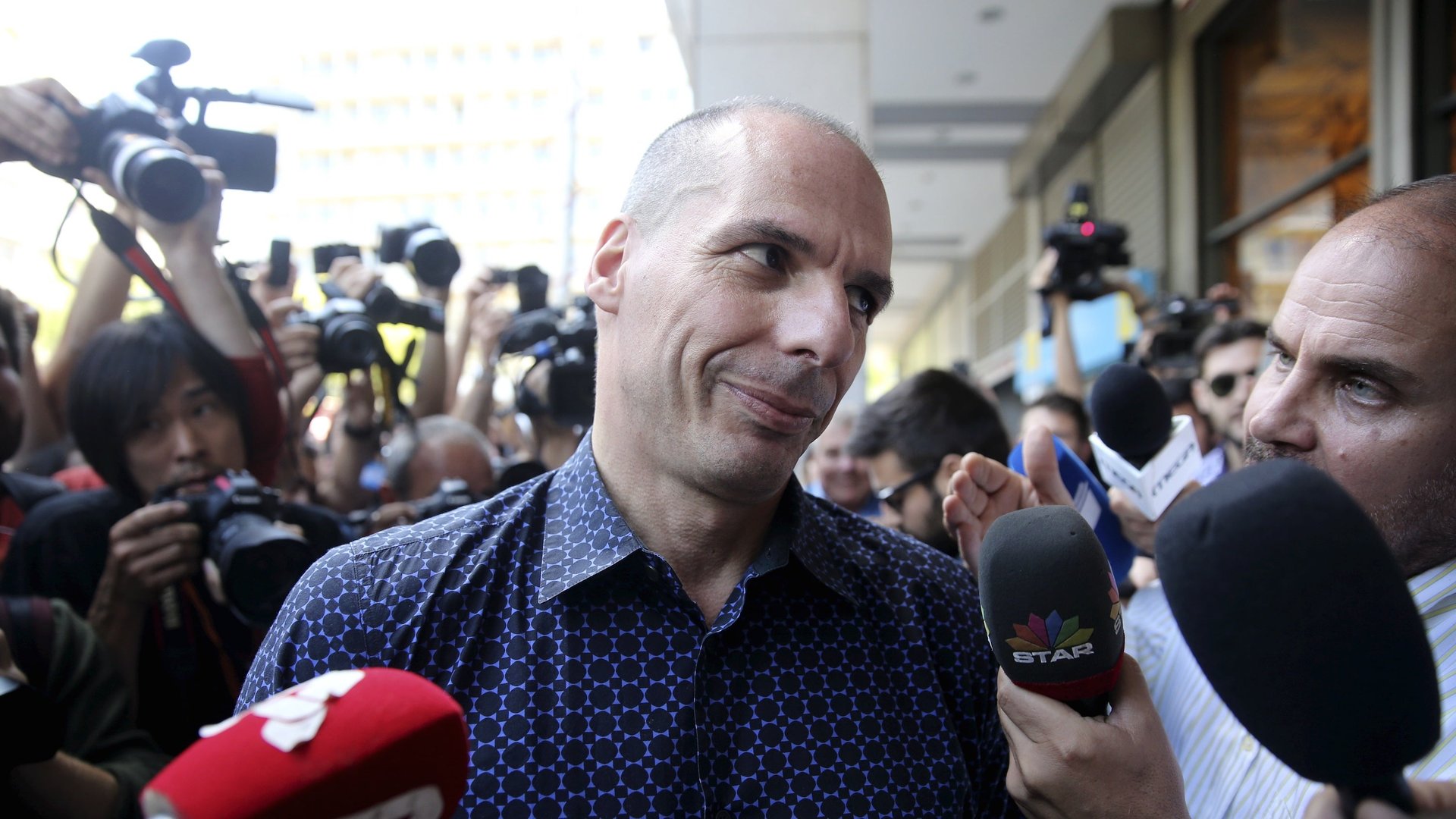Read: Yanis Varoufakis’s caustic annotations to Greece’s new austerity agreement
Lawmakers in Athens have approved new austerity measures in an effort to appease Greece’s European creditors. The agreement stipulates a slew of tax hikes and government-spending cuts as the basis of negotiations for a new bailout package of roughly €86 billion ($94 billion).


Lawmakers in Athens have approved new austerity measures in an effort to appease Greece’s European creditors. The agreement stipulates a slew of tax hikes and government-spending cuts as the basis of negotiations for a new bailout package of roughly €86 billion ($94 billion).
Former Greek finance minister Yanis Varoufakis—who resigned shortly after a referendum in which the majority of Greeks rejected similarly strict bailout conditions—has some thoughts about this new arrangement. Republishing the text of the agreement between Greece’s government and the Euro Summit (which includes representatives from the euro zone and the European Commission) to his personal blog, the infamously sharp-tongued ex-minister added a number of acerbic annotations (pdf).
Varoufakis begins:
The Euro Summit stresses the crucial need to rebuild trust with the Greek authorities [i.e., the Greek government must introduce new stringent austerity directed at the weakest Greeks that have already suffered grossly] as a prerequisite for a possible future agreement on a new ESM programme [i.e., for a new extend-and-pretend loan].
From there, his language gets theatrically figurative:
Given the need to rebuild trust with Greece, the Euro Summit welcomes the commitments of the Greek authorities to legislate without delay a first set of measures [i.e., Greece must subject itself to fiscal waterboarding, even before any financing is offered].
He then takes on provisions of the agreement point-by-point, some of the better take-downs being:
• upfront measures to improve long-term sustainability of the pension system as part of a comprehensive pension reform programme [i.e., reducing the lowest of the low of pensions, while ignoring that the depletion of pension funds’ capital due to the 2012 Troika-designed PSI and the ill effects of low employment and undeclared paid labour].
• the adoption of the Code of Civil Procedure, which is a major overhaul of procedures and arrangements for the civil justice system and can significantly accelerate the judicial process and reduce costs [i.e., foreclosures, evictions and liquidation of thousands of homes and businesses who are not in a position to keep up with their mortgages/loans].
• on labour markets, undertake rigorous reviews and modernization of collective bargaining [i.e,. to make sure that no collective bargaining is allowed], industrial action [i.e., that must be banned] and, in line with the relevant EU directive and best practice, collective dismissals [i.e., that should be allowed at the employers’ whim], along the timetable and the approach agreed with the Institutions [i.e., the Troika decides].
• to develop a significantly scaled up privatisation programme with improved governance; valuable Greek assets will be transferred to an independent fund that will monetise the assets through privatisations and other means [i.e., an East German-like Treuhand is envisaged to sell off all public property but without the equivalent large investments that West Germany put into East Germany in compensation for the Treuhand disaster].
• in line with the Greek government ambitions, to modernise and significantly strengthen the Greek administration, and to put in place a programme, under the auspices of the European Commission, for capacity-building and de-politicizing the Greek administration [i.e., turning Greece into a democracy-free zone modelled on Brussels, a form of supposedly technocratic government, which is politically toxic and macro-economically inept].
• to fully normalize working methods with the Institutions, including the necessary work on the ground in Athens, to improve programme implementation and monitoring [i.e., the Troika strikes back and demands that the Greek government invite it to return to Athens as conqueror—the Carthaginian Peace in all its glory].
• the Euro Summit made it clear that the start of negotiations does not preclude any final possible agreement on a new ESM programme, which will have to be based on a decision on the whole package (including financing needs, debt sustainability and possible bridge financing) [i.e., self-flagellate, impose further austerity upon an economy crushed by austerity, and then we shall see whether the Eurogroup will grave you with another toxic, unsustainable loans].
• there are serious concerns regarding the sustainability of Greek debt [n.b. Really? Gosh!].